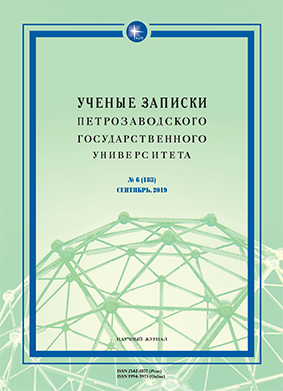Спартанские цари и эфоры: сосуществование и взаимодействие
двух государственных институтов
SPARTAN KINGS AND EPHORS:
THE TWO STATE INSTITUTIONS’ COEXISTENCE AND INTERACTION
Author(s): Aleksey Leonidovich DarvinSubject(s): History
Published by: Петрозаводский государственный университет
Keywords: Spartan kings; ephors; history of state institutions; Great Rhetra; Eunomia; Asteropos; Chilon; Cleomenes I; Agesilaus II
Summary/Abstract: The article explores the issue of institutional distribution of powers between the kings and the ephors and their relations during the classical period of Spartan history. Its main objective is to reconsider the concept that prevailed in historiography until recent years stating that the ephorate political role increased to the detriment of the kings’ authority and power, starting from the sixth century B. C., which now appears short on substantiation. As the above mentioned concept still prevails in Russian historiography, and the foreign research that offers an alternative view hasn’t been analyzed and reviewed, the pressing task is to undertake an analysis of the available sources once again, given the results of this research. Because of the near-complete lack of extant political and legal documents from Lacedaemon, the deliberate refusal of the Spartan authorities to put laws and ancient tradition providing information about the Spartan state in writing, it is impossible to restore the stages of constitutional evolution of Sparta. Based upon the first sources in this regard (Plutarch citing The Great Rhetra, its addendum and the fragments of Tyrtaeus’s poem Eunomia), one cannot conclude that the kings lost a part of their authority. Moreover, the majority of researchers admit the creation of the ephorate by the kings themselves in the middle of the eighth century B.C., which was an antiaristocratic and not an antimonarchic action. Attempts to link the ephorate accretion of power during the Archaic age to the activities of specific individuals like Asteropos or Chilon are hardly proven hypotheses. When analyzing the relations between the kings and ephors during the Classical period, it is also impossible to prove that the kings were eased out of power or their authority was weakened in favour of the ephorate. The analysis of the sources leads to the following conclusions: all significant political developments and trials of the kings were in the hands of the “Little Ecclesia” and were not the prerogative of the ephors only; the kings themselves initiated trials and acted as judges at some of those; the kings were actively involved in all decisions made together with collegiate bodies, and often had a certain impact on them. With regard to the ephors’ exclusive competence in the area of foreign policy, one could not confirm this hypothesis, at least regarding the reign of the kings Cleomenes I and Agesilaus II. In foreign policy area, the kings had priority over the ephors, because unlike the ephors who were elected annually, the kings were able to offer a long-term foreign policy agenda during their life-long reign.
Journal: Ученые записки Петрозаводского государственного университета
- Issue Year: 2019
- Issue No: 6 (183)
- Page Range: 22-29
- Page Count: 8
- Language: Russian

